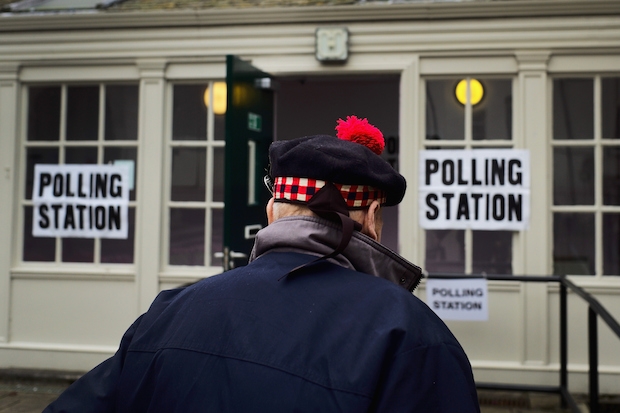Say this for Alex Salmond: he is entirely typical of the movement he once led. The former First Minister’s new book makes much of what you might deem the referendum’s dirk-in-the-back theory. It was The Vow what won it; the last-minute, hastily-prepared, promise of more powers for the Scottish parliament. Without that, Yes would have carried the day.
And it if wasn’t the bleedin’ Vow it was the revolting, Unionist, press. If they had not hoodwinked the Scottish people everything would have been different.
Conveniently, this allows Yes voters to avoid asking why they lost a referendum they might have won. A referendum, in fact, that until the votes were counted they were convinced they had won. (The twist in the tale of Salmond’s book is that Scotland voted No. Who saw that coming?)

This is all wrong, of course, but when the legend becomes fact it’s simplest to print the legend. This is Scotland, sir.
The latest research from the Scottish Referendum Study confirms this. Yes voters were asked why they thought other voters endorsed the Union. The results are illuminating.
41 percent of Yes voters blamed the Westminster leaders for misleading Scots about more powers. 17 percent blamed the press and the BBC. 12 percent simply accused the electorate of losing its nerve.
See them Scots? Too wee, too stupid, too timid to vote for independence.
No voters saw things rather differently. 30 percent of them voted No because they feel British and believe in the Union. 28 percent said their primary motivation for voting No was that there were too many unanswered questions about independence and 26 percent did so because they felt Scotland would be poorer, not richer, after independence.
Just 3.4 percent of No voters say The Vow and the promise of more powers persuaded them to stick with the Union.
So the nationalist narrative explaining their defeat is, on all the available evidence, completely wrong. Not that this matters or will actually persuade anyone to re-evaluate their opinions. We’re well past the point at which that is possible.
Because this research confirms – again and for the slow learners – that Scotland is two tribes, now and there’s very little common ground between them. Indeed they are drifting further apart not closer together.
Yessers and Noers simply see their country – and the world – very differently. They inhabit different realities. (One is more real than the other but that’s a different matter entirely.)
The Referendum study also confirms that very few people, once they had made up their mind, switched from one side to the other. The battle was almost exclusively for those who began as undecided voters. Only 1.4 percent of voters, for instance, said the debates changed their mind (and only 5 percent say the debates even caused them to think about changing their mind).
But the research also confirms that Unionism is in deep, deep, trouble. The Nationalists are happy to play a long game (one reason why they have no real incentive to accept even a putative deal on full fiscal autonomy after this election). Demography does not have to be destiny but – broadly-speaking – demography is on the side of independence.
This is the voting breakdown by age (blue is No, orange is Yes):
Of course trends change. Nevertheless it is clear that each year more No voters will die than Yes voters and they will be replaced on the electoral roll by new voters who are significantly less likely to be No voters. (That said, this might be balanced by more people moving to Scotland from other parts of the UK.)
And although many No voters say they were motivated by (unanswered) questions of detail and process and economics it remains the case that identity was, as many of us always thought it was, the surest indicator of how a given punter was likely to vote. Identity was the bedrock upon which all else was built.
Unless there’s a revival in British sentiment in Scotland then, again, the Union’s long-term survival must be reckoned highly doubtful. Perhaps there will be such a revival but, at present, that seems modestly improbable.
So all this helps explain why Nicola Sturgeon and her supporters can afford to wait. The long-game favours them. Most people, I think, expect another referendum at some point. The question is when, not if.
Support for the Union remains provisional and contractual. Unless Unionism redefines and retools itself then, as matters stand, it is liable to wither and decay.
In summary, then, deluded Yes voters do not understand their No-voting compatriots but this does not matter very much because far more of the longer-term trends are moving in their direction. If they sense the march of history is on their side it is because they have some reason to do so and Unionists have good cause to see the Tweed and the Solway foaming with much anxiety.
PS: One last thing: the research suggests 52 percent of voters born in Scotland voted Yes compared to just 27 percent of those born elsewhere in the United Kingdom and 49 percent spawned overseas. It is to the SNP’s credit – and a sign of the party’s maturity – that they have not made anything of this, nor used it to whip up nativist sentiment. Other nationalist parties in other countries would not, I think, be so restrained. A reminder, too, that despite everything the referendum was, by the standards of these things, a civilised affair.









Comments